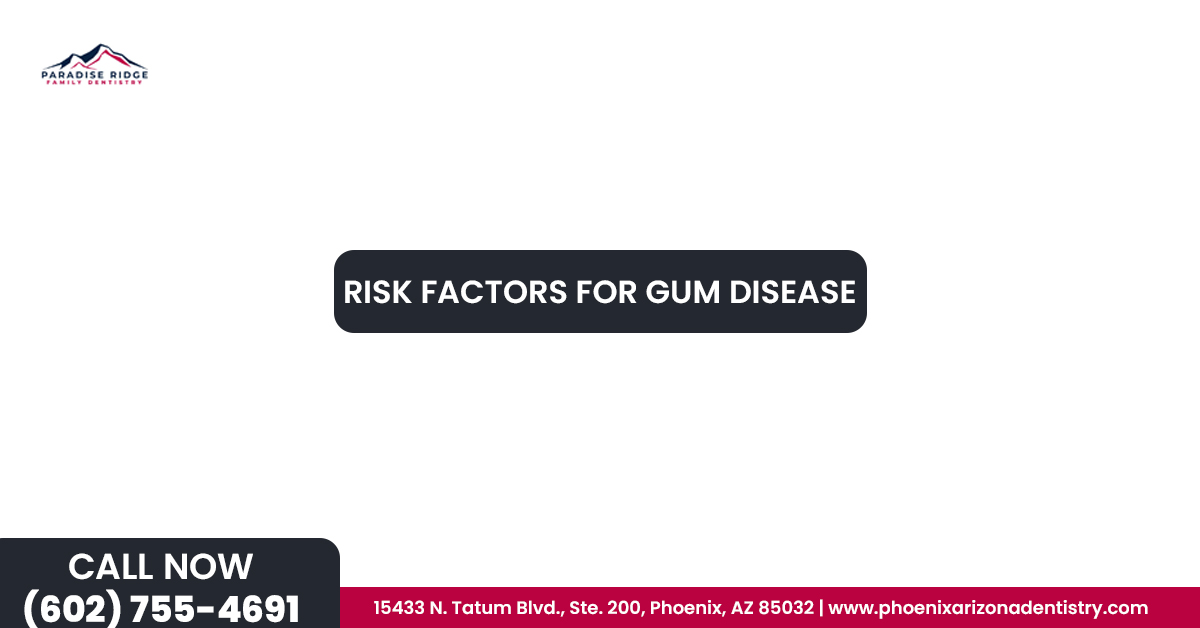What is gum disease? Gum disease, also known as periodontal disease, affects nearly half of adults over 30, making it one of the most common dental conditions nationwide. This progressive infection begins in the tissues surrounding teeth and can lead to serious oral health complications if left untreated. Recognizing the symptoms of gum disease early provides the best opportunity for successful intervention and prevention of longterm damage. By knowing how to detect gum disease, better oral care decisions can be made to maintain optimal dental health.
Table of Contents
Early Signs And Symptoms Of Gum Disease
The early signs of gum disease often develop silently, with subtle changes that might go unnoticed without proper attention. Gingivitis, the first stage, shows a number of warning signs:
- Bleeding gums during brushing or flossing
- Red, swollen, or tender gum tissue
- Persistent bad breath or metallic taste
- Gum recession making teeth appear longer
- Sensitivity along the gumline
- Changes in how teeth fit together when biting
Morning awareness particularly matters noticing tender gums, a metallic taste, or red toothbrush after brushing often reveals developing issues.
As the condition progresses to periodontitis, more serious symptoms of gum disease emerge:
- Formation of pockets between teeth and gums
- Loose or shifting teeth
- Pain when chewing
- Pus between teeth and gums
- Noticeable changes in bite alignment
Learning how to detect gum disease through these early warning signs allows for prompt intervention before irreversible damage occurs to supporting bone and tissue structures.

Risk Factors For Gum Disease
Understanding personal risk factors enables better prevention strategies. Several conditions increase susceptibility to periodontal problems:
- Hormonal Changes: – Gum inflammation and infection can be made more likely by pregnancy, menopause, and some types of birth control.
- Tobacco Use: – Smoking weakens the immune system, reduces blood flow to the gums, and increases the likelihood of gum disease by nearly seven times.
- Stress: – Chronic stress weakens immune defenses, making it harder for the body to fight infections, including gum disease.
- Age: – CDC reports show that over 70% of adults aged 65 and older experience some form of gum disease.
- Health Conditions: – Diabetes not only weakens circulation and immune function but also makes blood sugar control more challenging when gum disease is present.
- Diet: – An excessive intake of sugary foods and processed carbohydrates encourages plaque buildup and bacterial growth.
- Genetic Predisposition: – Research suggests about 30% of people have an inherited susceptibility to gum disease, regardless of their oral hygiene habits.
- Poor Oral Hygiene: – Infrequent brushing and flossing allow plaque to accumulate along the gumline, leading to infection and inflammation.
- Medications: – Certain drugs, particularly those that cause dry mouth, reduce saliva flow and create an environment where bacteria thrive.
What To Do If You Have Gum Disease?
Quick action reduces harm and enhances the results of treatment:
- Modify Diet For Gum Health: – Cutting back on sugar reduces bacterial growth, while increasing vitamin C intake strengthens connective tissue and supports healing.
- Improve Oral Hygiene Habits: – Brushing twice daily with a soft-bristled toothbrush and fluoride toothpaste, flossing daily, and using an antimicrobial mouthwash can help manage mild gingivitis.
- Prioritize Professional Dental Care: – Scheduling a comprehensive dental examination allows for early detection and tailored treatment. Mild gingivitis can be reversed with professional cleaning and better home care, while advanced gum disease requires specialized treatment.
- Adopt Lifestyle Changes: – Quitting smoking significantly enhances treatment success and lowers the risk of gum disease.
Schedule A Dental Appointment Or Learn More About Gum Disease Prevention
Professional gum disease treatment offers multiple approaches depending on severity:
Non-Surgical Options:
- Scaling and root planning (deep cleaning) remove plaque and tartar from below the gumline.
- Localized antibiotic therapy delivers medication directly to infection sites.
- Professional-grade antimicrobial rinses reduce bacterial populations.
Advanced Interventions:
- Flap surgery addresses severe cases with significant tissue damage.
- Bone and tissue grafts replace or encourage regrowth of damaged structures.
- Guided tissue regeneration stimulates natural healing processes.

Paradise Ridge Family Dentistry: Comprehensive Gum Disease Care
Prevention remains the most effective approach to gum health. Regular dental visits allow for early detection and intervention before conditions worsen. Professional cleanings remove hardened deposits that home care cannot address, while comprehensive examinations identify potential concerns before they develop into serious problems.
For those seeking gum disease treatment in Arizona, Paradise Ridge Family Dentistry delivers comprehensive periodontal care through advanced diagnostic technology and evidence-based therapies. Our experienced team provides customized treatment plans addressing individual needs and risk factors, ensuring optimal outcomes through thorough evaluations and personalized care recommendations.


